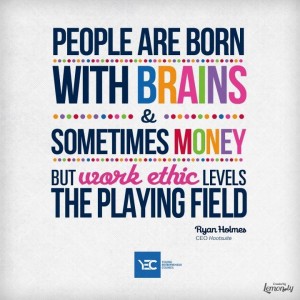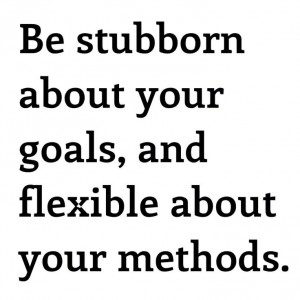Thursday, November 26th, 2015...2:30 pm
10 Skills PhDs Master that Give them an Edge over Other Job Seekers
Guest post: Hamidreza Saghir, PhD student, and blogger for GradCompass
A PhD has traditionally been the path to a career in academia. However, recent job trends point to a placement rate of STEM PhD graduates in tenure positions that is less than 1%. Although this is not the most encouraging statistic, there might be a silver lining. With the growing demand of tech companies for a highly skilled work force, and the ample reports of unfilled tech jobs, PhD holders and companies can find a mutually beneficial relationship by keeping an open mind to the possibility of PhD holders filling those vacant tech job slots. In fact, this idea of PhD students finding industry jobs once their graduate work is complete is becoming more and more popular with current students.
Depending on the industry and the job, there are varying demands for technical skills in the field. However, there are some common skills that almost all companies value. In a survey by CareerBuilder, 77% of employers indicated that they were seeking candidates with soft skills. Although traditional academic training needs a serious review in light of new job trends, it still constitutes a solid foundation for successful employment in many of these highly sought-after job placements. These skills include:
1. Problem solving. In order to stay competitive in the business environment, tech companies need employees that can effectively solve problems and think critically. Critical thinkers rely on evidence and weigh the influences of motives and bias while avoiding emotional impulses in jumping to conclusions. Objective thinking often reveals hidden layers of a problem that are not evident at first glance.
Hiring managers usually ask candidates about a time they had to overcome a challenge in the workplace, they do this to measure a candidate’s ability to think objectively in the face of obstacles. Critical thinking and problem solving are skills that PhD students consistently practice during the course of their graduate studies, and is a requirement for successful academic publishing. By the time a PhD candidate finishes their studies, they have already gone through multiple rigorous review processes that require critical thinking, and are well prepared for problem solving challenges that might appear in the workplace.
2. Willingness to learn. The world changes at a rapid pace, and companies need to stay up-to-date with the latest technologies and information to stay on top. To do this, these companies need to hire people who are willing to change with the times, and who have the drive and capacity to learn new things. Because PhD candidates need to stay up-to-date with recent works in their field, they are in a constant loop of learning during their graduate training. The literature review process for PhDs continues up to the end of their graduate studies, and ensures that PhD students are the type of people who will always be open to learning.
3. Work ethics. Companies value employees that are dependable, meet deadlines, and stay focused at work. Working at least four years toward a PhD with minimum payment is a great indication of devotion, loyalty to an idea, and keeping the personal out of the professional. A good work ethic is pivotal to a successful PhD degree, and a successful career.
4. Coaching co-workers. Many employers value strong teamwork skills. Employees who are willing to help co-workers, and coach them along the way, are a great asset to a team’s overall success. Just as PhD students have helped new lab-mates get up to speed on projects, so too can they provide the same coaching for any new team members in a future workplace.
5. Presentation Skills. Regardless of the position held, many employees are expected to be able to present their work to management, colleagues, and customers. After going through grad school – where presenting their work to lab-mates, supervisors, departments, and at conferences is a common occurrence – PhD students are well-versed in this essential skill.
6. Humble confidence. A confident employee who voices their opinion will be heard; one who is also open to feedback will be listened to. Our experience working with supervisors has given us the tools necessary to be independent researchers/workers driven by success; at the same time, however, we have also learned how to accept constructive criticism, and know how to adapt our methods to reflect this feedback. An employee who welcomes chances to improve will only be an asset to any company they choose to work for.
7. Creativity and innovation. Creativity is one of the most important agents of change and development for companies. During an interview, hiring managers usually ask candidates about a time when they were assigned a new project, and what steps they took to see this project through. This question gives the hiring manager an insight into an interviewee’s ability to think outside the box. As PhD students, we’re well adept at coming up with creative solutions to difficult problems; use this to your advantage in an interview! Employers want to know that the research you perform (or the work you do) is authentic, and that you have the ability to not only curate information, but to create it too.
8. Cultural fit. Many employers want to hire employees who are a great fit with their company philosophy and culture. PhD graduates are, for the most part, individuals with a sense of purpose and a set of values that drives their research, work, and life. Finding the right company to fit your values may take some searching, but when a company and candidate’s values align, both parties benefit from the relationship. Your workplace will be one driven by shared values, passions, and ideals…not just monetary incentives. Find the company that works for you, and get them to let you work for them.
9. Work under pressure. An employee that can work well under the ever-increasing pressures of the workplace is a great asset to all companies. PhD graduates have a proven track record in this regard. Almost all PhD projects involve a great degree of uncertainty where students aren’t sure whether any given project will be successful. Grad students have the wherewithal to stay motivated, focused, and on-their-game when deadlines loom and the pressure mounts.
10. Flexibility and focus. Oftentimes, deadlines and projects change at the spur of the moment in the workplace, and employees need to adapt quickly while staying focused. In situations with a high degree of uncertainty – for example, in a PhD project – this is very often the case. Grad students have learned to adapt quickly to meet new deadlines, and to adapt to minute changes in data and project outcomes. Responding with grace under pressure is something all employers look for, and something that we – as grad students – have more than a little experience with.
Putting it all together, there is a great opportunity for both companies and PhD graduates to keep an open mind about the possibilities that can be created by the presence of scholars in the industry. The success stories of many PhD graduates working outside of academia attest to this fact. GradCompass is trying to bridge the information gap between PhD graduates and their career options by providing relevant information for pursuing a career outside academia. We are hoping to add value to the lives of grad students by providing easy access to hard-to-find information that is not typically shared in grad schools. We welcome any input you may have as grad students pursuing a career whether outside academia, or within it. Stay tuned for more information from GradCompass on nailing the interview process.
Hamidreza is a PhD candidate at the University of Toronto in the Institute of Biomaterials and Biomedical Engineering. He is also co-founder and CEO at Recreate Robotics. Jobs for advanced degree holders is a cause he cares about and he blogs about the process of getting a job after a PhD on GradCompass.





Leave a Reply